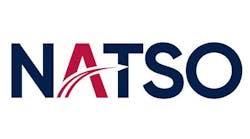A day-long exhibition and press event featuring the most modern clean diesel trucks and tractors and highlighting the major advances in clean diesel technology over the past decade will be held Feb. 28. The exhibit will be held outside the CAL-EPA building in downtown Sacramento and sponsored by the California Air Resources Board (CARB) and diesel industry officials
Officials from CARB, leading diesel equipment manufacturers and Diesel Technology Forum will explain how the cooperative effort between state officials and industry has led the transition to “clean diesel.”
Allen Schaeffer, executive director of the Diesel Technology Forum, a participant in the event, points out the significance of clean truck improvements. For example, it would take 60 of today’s clean diesel trucks to equal the same emissions from one pre-1988 truck, Schaeffer said, which demonstrates the “remarkable” advance in clean diesel technology over the past decade.
Further, Schaeffer said, emissions from heavy-duty diesel trucks and buses have been reduced by 99% for nitrogen oxides (NOx) and 98% for particulates over the past 10 years, while ultra-low sulfur diesel required since 2010 has reduced sulfur emissions by 97%.
“These historic environmental improvements take an even more important significance when you consider that over 80% of all freight in the U.S. is moved by diesel powered trucks, railroads and marine vessels,” Schaeffer said.
And future vehicles will be even cleaner, Schaeffer said, due to the recently established EPA program to reduce greenhouse gas emissions by establishing new fuel efficiency standards for commercial trucks and buses beginning in 2014.
“Because of the sheer magnitude of commercial vehicles operating in the United States, this regulation has the potential to result in significant environmental and energy efficiency gains,” Schaeffer said. “The U.S. fleet of trucks consumes about 22 billion gals. of diesel fuel every year. Over the lifetime of the vehicles affected by the new rule, the program is expected to reduce oil consumption by more than 500 million barrels, result in more than $50 billion in net benefits, and reduce carbon dioxide emissions by 250 million metric tons.
“And because diesel provides a unique technology platform suitable for expanded use of hybrid powertrains and lower-carbon renewable fuels — additional new technology will be available for reducing GHG emissions in the future,” Schaeffer added.
Schaeffer said the new technology has also provided increased efficiency in conjunction with the decrease in emissions. Diesel vehicles manufactured after 2010 are experiencing an average 5% improvement in fuel efficiency, making them cleaner and more fuel efficient than ever before.
And Schaeffer said the new diesel technology was not just benefiting new trucks and engines.
“Through the use of new equipment, older diesel engines can improve their performance and reduce key emissions by up to 90%,” Schaeffer said. “With an estimated 11 million older diesel engines still in operation, it's vital the federal, state and local governments continue programs like the Diesel Emissions Reduction Act to modernize and upgrade the older buses, trucks, tractors and marine vessels.”
For more information visit www.dieselforum.org.


